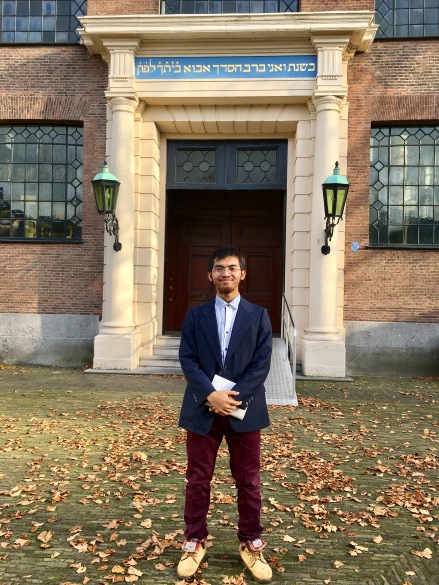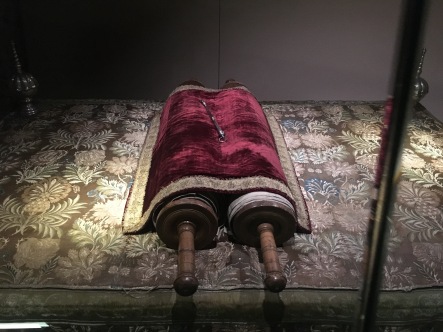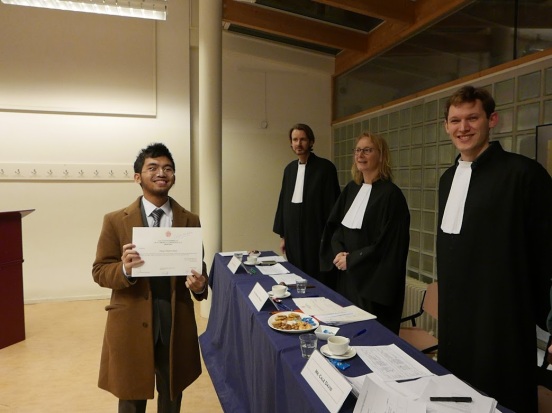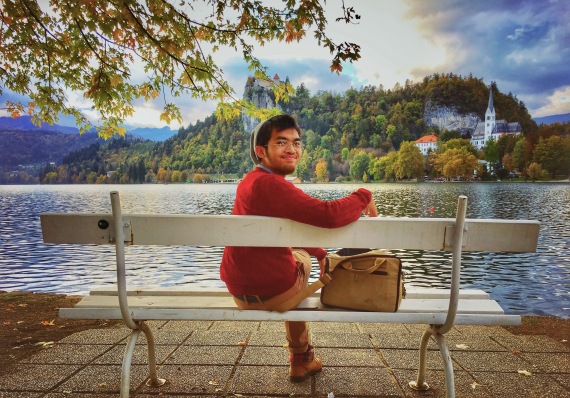So a while ago I received a letter from the International Admission Office of Ritsumeikan University. I got the request to share my experience during the study abroad program in Leiden which would then be published in next year’s Ritsumeikan international admission brochure. The following is my brief answer to their 5 questions.
1. Why did you decide to study abroad?
My motivation to join the one-year exchange program in Leiden is primarily academic. While not denying that Ritsumeikan is a prestigious academic institution in Japan, I feel that the scope and depth that our IR department dedicates to certain fields of study and/or region (such as Middle East, Europe and Latin America) are still not optimal. Hence, I would like to make the best use of Ritsumeikan’s extensive partnership with other universities to “fill the gap”.
Furthermore, I particularly pick a European university as my exchange destination since I want to pursue masters and doctoral degree in Europe. It is thus crucial to familiarize myself as early as possible to the more liberal education culture of Europe. Lastly, I am very keen to discover the heritage of my country, Indonesia, which is vastly available (and soundly preserved) in the Netherlands, its former colonizer.
2. What classes did you take? Tell us about your favorite class(es).
I take classes from 3 faculties in Leiden: Faculty of Humanities, Faculty of Law and Faculty of Social and Behavioral Science. The majority of the classes fall into the category of Area Studies (e.g. Politics of South and Southeast Asia, Institutions of European Union) and Religious Studies (e.g. Jews and Judaism, Global Christianity). I also took a Language class which is Hindi, the national language of India.
By far my favorite class is Jews and Judaism. A prominent Jewish scholar and a wife of a Dutch rabbi, Prof. dr. Judith Frishman teaches this class. Since I come from Indonesia where virtually no Jewish community is present and where Judaism is scarcely studied, her lecture is indeed very revelatory. As a part of the class program, the instructor organizes a trip to the Amsterdam Jewish Historical Museum and the oldest synagogue (a place like the church or mosque for Jews to pray) in the Netherlands —which was a very fun experience.


The oldest Torah scroll in the Netherlands, dating up to the 1500s
3. What differences did you notice between studying/student life at Ritsumeikan University [my home uni] and at your study abroad university?
I feel that the option of classes is more various in Leiden. There are also more guest professors and more frequent open lectures within which students of different levels —undergrads, masters and doctoral— can jointly participate and engage in a fruitful debate.
It is also interesting how I felt very much at home in Leiden. Indonesian foods are everywhere, not only in restaurants and supermarket but also street vendors! And so does Indonesian vocabulary, many of which are adopted from and exported to Dutch. Many prominent Indonesian politicians (ministers, speaker of parliament and mayors among others) frequently visit Leiden, allowing me to have the “rare access” to engage them in discussions, which I might not have been able to do back home.
4. What has been the best experience about your time abroad (so far)?

I participated in program called Moot Court Public International Law. Basically, I am assigned with the task of being an international lawyer pleading before the (model) International Court Justice and convince the Court to favor the position of my client. This is a novel experience for me since I do not have any background in law/legal studies. So I did struggle a lot in the process to visit many different treaties and legal cases to construct my position. During our preparation for the final pleading, we also got to the very rare opportunity to enter the Peace Palace in The Hague (the headquarter of ICJ) and actually talk with ICJ staffs!
After months of preparation, I appeared before the Court and presented my case. The judges found my performance to be exceptional compared to other lawyers. They awarded me with the highest score and they also granted a cum laude certificate.
5. Anything else you want to say or think might be interesting.

- I was a bit worried at first that I might lose my Japanese proficiency. Apparently, however, there are many Japanese exchange students in Leiden and I become good friend with them! Three of my best friends came from prominent schools: University of Tokyo, Kyoto University and Keio University. The same goes with my Arabic. I went to the Mosque often and there I intensively interact in Arabic with fellow Moroccan Muslims —the Moroccans are the biggest immigrant community in Netherlands.
- There are also many student unions which organized social events and group trips to different European countries. With these student-organized trips, I was able to stumble my feet on Croatia, Slovenia, Switzerland and France along with fellow friends.
- This year, 2017, Leiden University officially opened the Asian Library, which was inaugurated by the Dutch Queen Maxima. The library hosts many precious Asian collections and manuscripts, prominent of which are those related to Indonesia during the Dutch colonial time (1600-1945).
